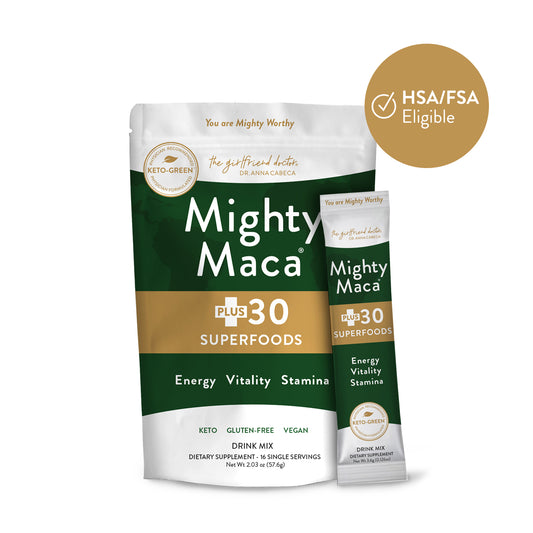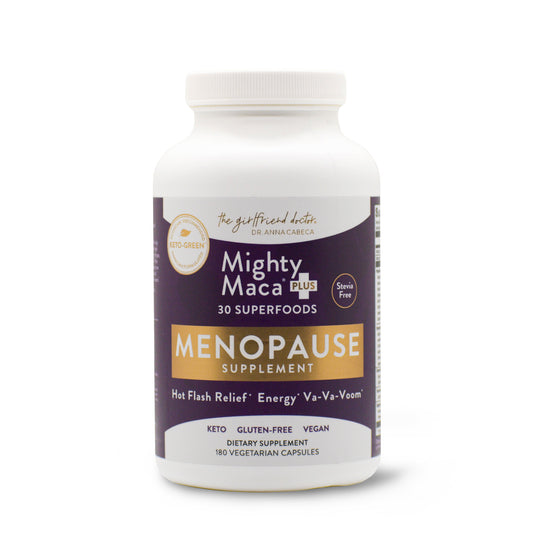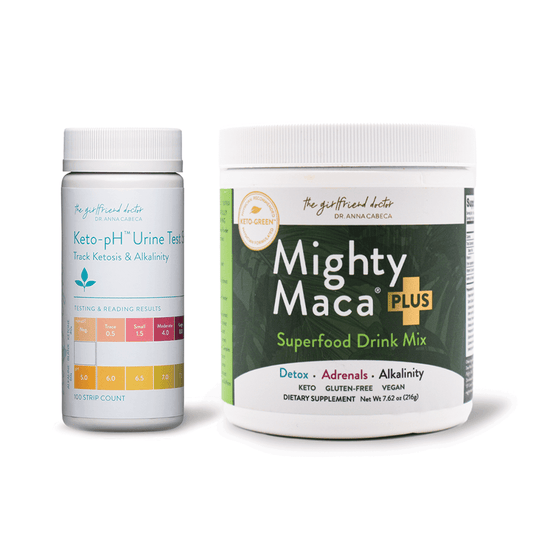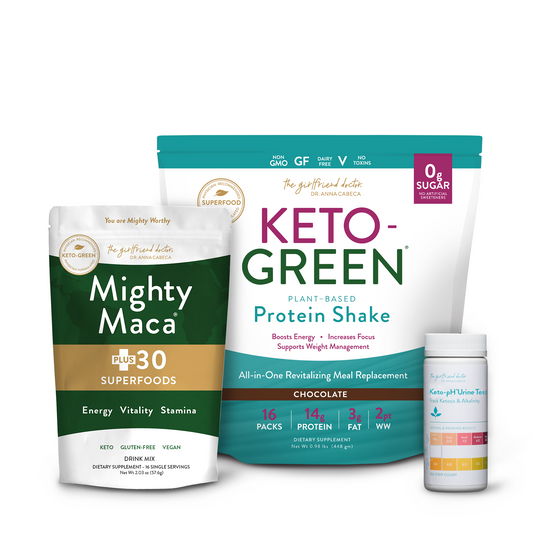Do you remember your high school chemistry class? If so, you likely learned a bit about pH, as well as the concept of acid and base (alkalinity). The pH scale ranges from 1 to 14, with 7 considered to be neutral, higher numbers being alkaline (base) and lower numbers being acidic (acid).
You can measure any aqueous (containing water) solution and determine its pH (pH actually stands for “power of hydrogen” and is measuring the total hydrogen ion concentration in a solution).
Human blood, for example, is aqueous. Its pH is quite stable at about 7.4, on the alkaline side of the scale. The ocean, as another example, has a pH of about 8.1. Your pool? An optimal pH for a pool is 7.4, which mirrors the pH of the human eyes as well as the pH of mucous membrane within humans.
Do you see a pattern here? Healthy pH tends to be on the alkaline side. And the pH for most things can be affected by inputs into that particular solution. So, for example, the ocean’s pH has actually become more acidic over time and scientists believe that is due to the input of CO2 related to global warming.
Blood pH Doesn’t Change… It Stays Stable Except In Life Threatening Situations
Your body’s urine and salivary pH can change due to different inputs, such as with the different foods you eat. This can tell us a lot about our cellular health.
Interestingly, the net effect of different foods acting on your body can increase or reduce your body’s overall alkalinity. I’ll talk more about what foods result in both an acid and alkaline change in your pH in a minute (and how easy it is to measure your own body’s acid-alkaline state!), but first I want to talk a bit more about the specific pH that we are measuring.
While we “measure” your body’s acid-alkaline state, please note that we are not measuring the pH of your blood! The pH of human blood is about 7.4 and really doesn’t change (unless you are extremely ill or near dying). The body, in particular the lungs and kidneys, works diligently, automatically, to keep the pH of the blood tightly controlled. Blood contains built in “buffering” mechanisms, with the kidneys sending in mineral buffers such as calcium carbonate and calcium phosphate, when needed to keep your blood pH at a health 7.4.
The rest of your body, however, varies in pH level. The stomach, for example, is very acidic, maintaining a pH at less than 3.0 typically so that it can fully breakdown the food you eat and also kill ingested pathogens.
The pH of the vagina is 3.8 – 4.4. The skin has a pH below 5.
The pH of every system in the body is fine-tuned to its function in this regard.
Alkalinity Is About More Than What We Eat
Checking our urine pH clues in to our cellular health, mineral status and lifestyle consequences. This is key to discovery!
The overall net effect of pH, needs to remain alkaline. There is growing research that – just as we see above with the ocean, your eyes, or the ideal pH of your pool – that an alkaline state is healthier for your body. So the body attempts to maintain an alkaline pH balance in most of its tissues and cells.
In the 60’s scientists were finally able to analyze the chemical components of foods, and that resulted in foods being identified as acid or base. More recent science has shown that if the body continues to be fed a high-acid diet that this results in increasing the overall acid load on the body. As I said, this does not change the blood pH.
So What Does The Research Say About Increased Acid Load’s Negative Effects?
Acidosis:
If you consume too many acidic foods your body’s overall pH load will become acidic and can result in something called “chronic low-grade acidosis.” And when your acid load is high, a lot of your mineral levels, such as magnesium, calcium, potassium and bicarbonate, are likely low. And this is where impacts to your health start to occur.
Scientists have actually compared how the typical acid-load from human diets has evolved over time, and there are significant differences. When they look at what our Homo sapiens ancestors ate (primarily plant foods) they found a low acid diet was most likely consumed. A study was done using 159 hypothetical pre-agricultural diets (since we don’t know for sure what the mix was of what our ancestors ate, a variety of diet mixes were used in the study), and 87% of those were found to be “net base producing” (alkaline, not acidic).
In comparison, the average American/Western diet has been shown to be “net acid producing” (calculations from the US Third National health and Nutrition Examination Survey) (1).
A lot of research has subsequently been done on the potential consequences of living with this chronic low-grade metabolic acidosis from eating our traditional Western diet, as well as in evaluating the effects of reducing or eliminating this diet acid load by altering the diet in some way.
May support bone health and maintain lean muscle mass:
Muscle mass is important to fall and fracture prevention, supporting the importance to overall bone health, especially in older women.
Studies have shown improvements to lean muscle mass with an alkaline diet.
Acidic diets are often deficient in magnesium, and low magnesium levels have been associated with osteoporosis, (2) hypertension, metabolic syndrome and type 2 diabetes. A deficiency in magnesium also impacts Vitamin D activation which is needed for strong bones.
Excess dietary protein in the diet (3) has been found to adversely affect bone. Research in this area has been inconsistent.
Prevents magnesium deficiency and improves immunity:
Magnesium deficiency can result in anxiety and sleep issues, headaches and negative impacts to many systems throughout the body. Impacts to Vitamin D activation can result in reduced immunity.
An alkaline diet increases intracellular magnesium (and note that up to an estimated 80% of us are deficient in magnesium!) (4).
Lowers pain, inflammation and risk of disease:
I have really seen this in my Magic Menopause participants as well as with my own alkaline diet! As their bodies have become more alkaline, they have had less joint pain, menstrual discomfort and inflammation. Studies support this as well. Chronic acidosis is associated with chronic pain and inflammation (5), especially relating to chronic back pain.
Research has also shown that an alkaline diet has been linked with lower rates of cardiovascular disease, cancer and other chronic diseases (6).
Animal and cells studies have also shown that an acidic environment may actually support cancer proliferation.
What Foods Are Acidic Versus Alkaline?
You can find charts all over the internet that talk about the pH level of different foods

In general, the pH values that have been assigned to different foods quantify the acid or base effect on the body. But there are some exceptions as some foods have a different pH outside the body. So a lemon (outside the body) is an acidic fruit with a pH of 2, but it has an alkalizing effect inside the body! (in fact, it is an extremely good alkalizing secret and good for you in even more ways).
A bit confusing sometimes, but in general, fruits and vegetables are the most alkaline (due to their mineral content), and meat, poultry, dairy, sugar, processed foods, caffeine, etc. are the most acidic. Grains are slightly acidic.
For all of you soda drinkers out there…it has a pH of 2.5! In general, as with many things, all of your vices are likely to be acidic. Sorry (and that includes vices beyond foods, such as smoking and not getting enough sleep!).
The other important thing to note about pH, acid and base foods, are that you are looking at the net effect of your diet. So however you want to approach that, maybe using the 80/20 rule. Consume a diet that is 80% alkaline (a lot of veggies), and 20% acidic (you do need your protein and healthy fats). You just want to reduce acidic foods and also eat meals that have a positive base load.
Along with choosing meals that will result in a positive base load, choose your foods from sources that ensure higher mineral content and fewer toxins (which are acid). I always suggest going organic for this reason. Non-organic options are likely grown in mineral-depleted soils that are also exposed to toxins.
There are many wonderful supplements and “cheats” to becoming and staying alkaline…more on some of those in future blogs, but of course my alkaline super foods drink, Mighty Maca® Plus, is one of them!
In my Magic Menopause program we measure for pH and ketones on a daily basis. It is very simple to do using my Keto pH urine test strips. The ladies love it…only when you test can you know for sure what is happening…and then make necessary changes.
Participants Were Quite Surprised…
To learn how very simple food choices could dramatically throw off their alkaline state.


Test Don’t Guess with my Keto-Alkaline Urine analysis Test Strips.
Testing really helps us check in to how what we are eating, how we are living, our stress effects and so much more, really impact our body. It is key to discovery.
Participants in my program also learned another important things. Alkalinity isn’t just diet!
Alkalinity Is Also About Lifestyle Choices
The women in my program quickly learned that hydration is a big impact to their alkaline state. As is how well they slept the night before they tested (sleep is so important to alkalinity and your overall health!). Did they exercise recently or have they sat at their desk for days in a row, eyes on computer screens, with little movement or stretching? Are they stressed out? Are they thinking in positive terms and connecting with their significant others , family members, community and pets (getting a good bump in oxytocin – our bonding hormone… which helps balance all of that cortisol we get from stress!)? Are they having healthy bowel movements? Have they been outdoors barefoot and watching sunsets? Have they received and expressed love? (MORE oxytocin-producing activities…incredibly joyful and alkalizing as well 😉)
Relationship stress can be a hidden effect as many of the women in my many hormone reset programs have found out. Feminine issues “down there” can cause sexual distress and relationship disconnects. There is research that shows how vaginal issues, such as dryness or pain during intercourse, actually affect women’s satisfaction in life… and create something called “sexual distress“. All of these types of negative impacts can affect your alkaline state.
And as I said earlier, vices typically add an acid load to your system. Physical vices, as well as all of the mental ones we have.
I will talk more about these lifestyle impacts in future blogs.
Diet is only part of what defines whether your body remains in a healthy alkaline state, or not.
Stay tuned for the second important piece of this chemistry puzzle, adding in Ketogenic diet principles while staying Alkaline! This blog will provide you with more info and links on the Ketogenic piece of my diet recommendations… some important hacks, and links to my free Keto-pH app. This app is a great tracking tool for all things Keto-Alkaline®! (even lifestyle components)…
References:
1. https://www.ncbi.nlm.nih.gov/pubmed/21481501
2. https://www.ncbi.nlm.nih.gov/pmc/articles/PMC1855626/
3. https://pubmed.ncbi.nlm.nih.gov/9614169/
4. https://www.ncbi.nlm.nih.gov/pubmed/22364157
5. https://pubmed.ncbi.nlm.nih.gov/16904534/
6. https://www.ncbi.nlm.nih.gov/pubmed/17658124
7. https://pubmed.ncbi.nlm.nih.gov/21481501/
8. https://www.ncbi.nlm.nih.gov/pubmed/18203912
Dawson-Hughes B, Harris SS, Ceglia L. Alkaline diets favor lean tissue mass in older adults. American Journal of Clinical Nutrition. 2008;87(3):662–665.
Welch AA, MacGregor AJ, Skinner J, Spector TD, Moayyer A, Cassidy A. A higher alkaline dietary load is associated with greater indexes of skeletal muscle mass in women. Osteoporosis Int., 2013; June;24(6):1899-908.
Vormann J, Worlitschek M, Goedecke T, Silver B. Supplementation with alkaline minerals reduces symptoms in patients with chronic low back pain. Journal of Trace Elements in Medicine and Biology.2001;15(2-3):179–183.
Frassetto LA, Morris RC, Jr., Sebastian A. Dietary sodium chloride intake independently predicts the degree of hyperchloremic metabolic acidosis in healthy humans consuming a net acid-producing diet. American Journal of Physiology—Renal Physiology. 2007;293(2):F521–F525.
Schwalfenberg Gerry K. University of Alberta. The alkaline diet: is there evidence that an alkaline pH diet benefits health? J. Environ Public Health. 2012; 2012: 727630.








